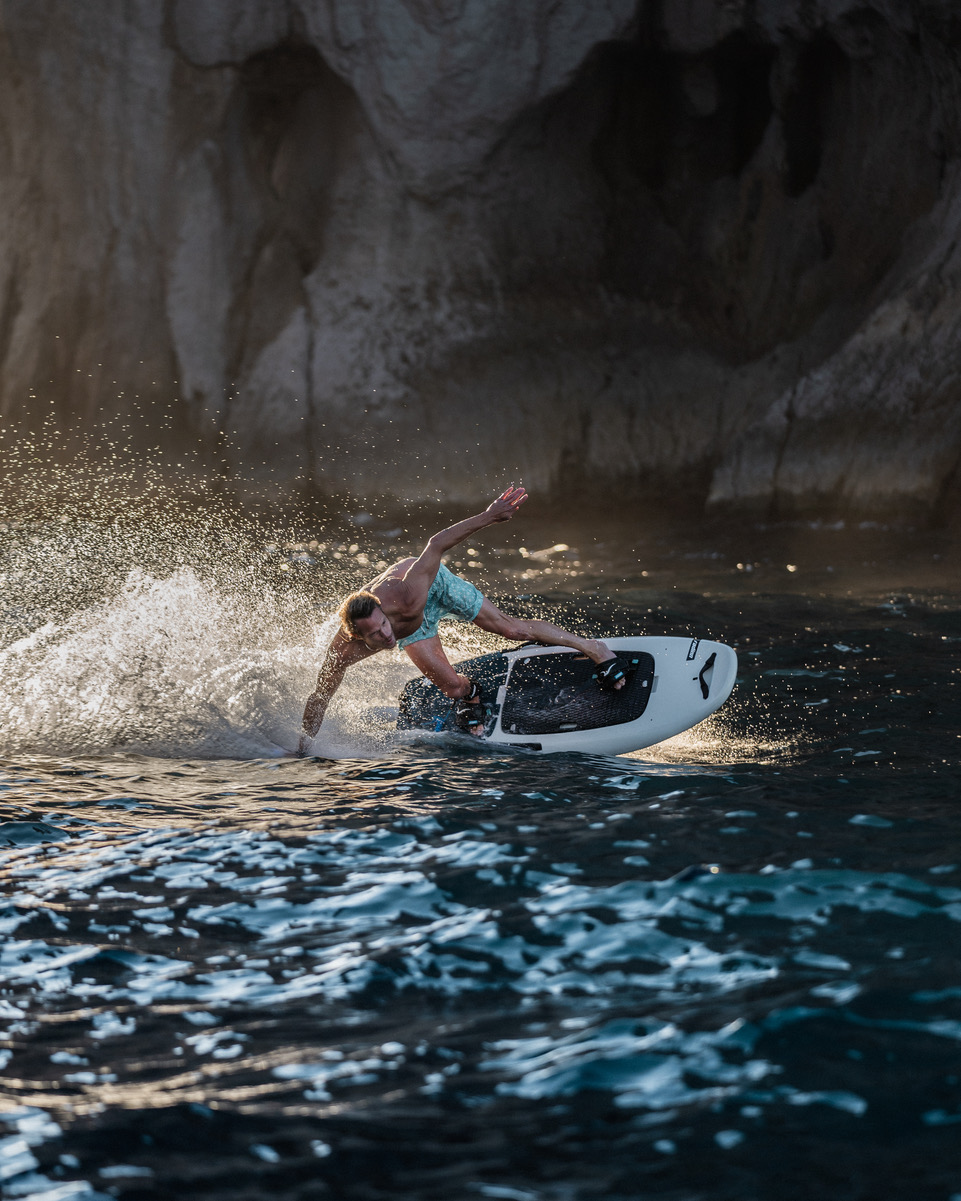
Cobra International has joined forces with Swedish watersports manufacturer Radinn to mass produce a new range of electric powered surfboards.
Cobra says that its boards have durable lightweight constructions and improved quality even at mass production volumes.
While Radinn’s existing boards were made of thermoformed plastic shells with an injected polyurethane (PU) foam core, Cobra suggested a switch to a lower density expanded polystyrene (EPS) foam core and moulded glass fiber skins. This lighter weight construction provided weight savings of around 25%, whilst maintaining the durability required by riders, the company said. This also made it possible to remove the edge seam around the board’s rails.
Radinn boards use a custom laminate made up from several plies of woven and stitched biaxial glass fiber fabrics, molded with epoxy resins to produce a tough monolithic shell. Demolded boards then proceed to painting, where two different designs are created – a full matt white colorway or shades of black with additional clear carbon stripes.
According to Cobra, Radinn can now deliver a target rate of 300 boards per month and has also started to supply composite fins for the boards.
This story uses material from Cobra, with editorial changes made by Materials Today. The views expressed in this article do not necessarily represent those of Elsevier.






